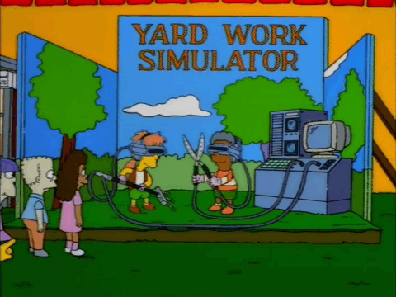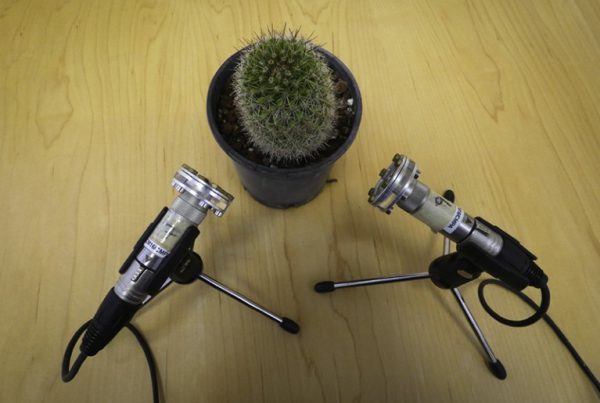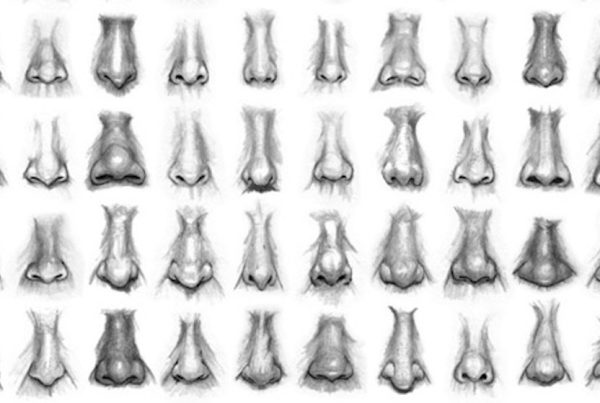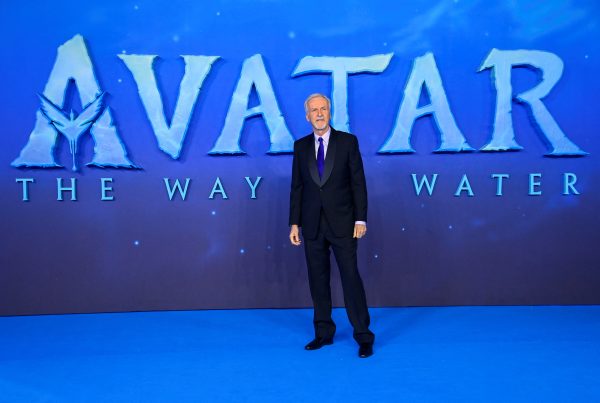(Fox)
When most of us think of virtual reality, we think of sweet video games.
But those chunky headsets and all-encapsulating graphics can do more than just give players a realistic experience of, say, virtual yard work.
Now, scientists are harnessing virtual reality for research.
A whole bunch of bright minds across a range of fields in science got together in Sydney, showcasing how virtual reality is aiding research.
Researchers transformed an art gallery in Redfern, an inner suburb of Sydney, into a funhouse of science-based illusions – some high-tech, while others were a little more low-fi.
And because 9Pickle froths over optical illusions and science, we had to check it out.
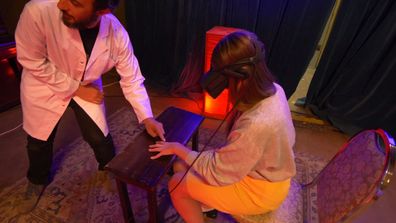
(Nine)
We met up with Dr Vince Polito, from the Department of Cognitive Science at Macquarie University.
He told us that, in the past five years, virtual reality has become a viable tool for scientists.
“It’s really opened up this whole new set of methods and set of experiments that we can run,” he said.
“My research team is interested in is something called multi-sensory integration – which is trying to understand how our brain takes different signals from different senses and combines those senses to lead to a subjective experience.
“If we start to manipulate the connection between these different sensory signals, people might have quite different subjective experiences.”
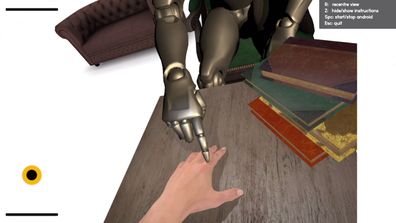
And while that could make for an exciting adventure VR game, it can be used to treat psychiatric disorders.
“It’s being used to treat paranoia to make people feel more comfortable about going out in public,” Polito explained.
“It’s also being used to treat body image issues like anorexia.
“My colleague Regine Zopf has been working on a lot of experiments to do with using virtual reality to understand how people perceive their own bodies.
“Seeing how people navigate through virtual environments give us clues about the dimensions they perceive of their own body.
“What we’ve able to do with this technology is we can create artificial environments that would be very difficult for us to do normally in a lab setting.”
By running VR experiments, such as the one above, researchers can learn more about how what we see can impact our sense of reality.
After participating in the robot arm experiment, it’s easy to understand how the mind can be tricked.
It doesn’t take long for your brain to start convincing you that what you’re seeing is the reality, even though you know that’s not the case.
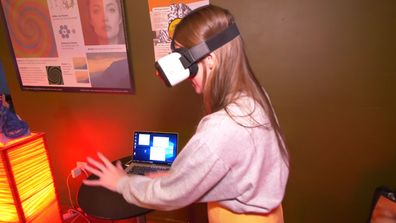
And this has important applications for psychological research.
“There’s a number of mental illnesses or psychiatric conditions where people have problems with multi-sensory integration,” Polito said.
“Even someone feeling like they hear voices can be understood as an issue where there’s a disturbance of in the way that they’re integrating their thoughts and maybe their auditory signals.
“These virtual reality experiments let us know what’s happening at a basic level in the brain to combine these signals and that points us toward what might go wrong in some of these different conditions.”
Source: Pickle curiosities: How virtual reality is being used for science as well as gaming – 9Pickle

